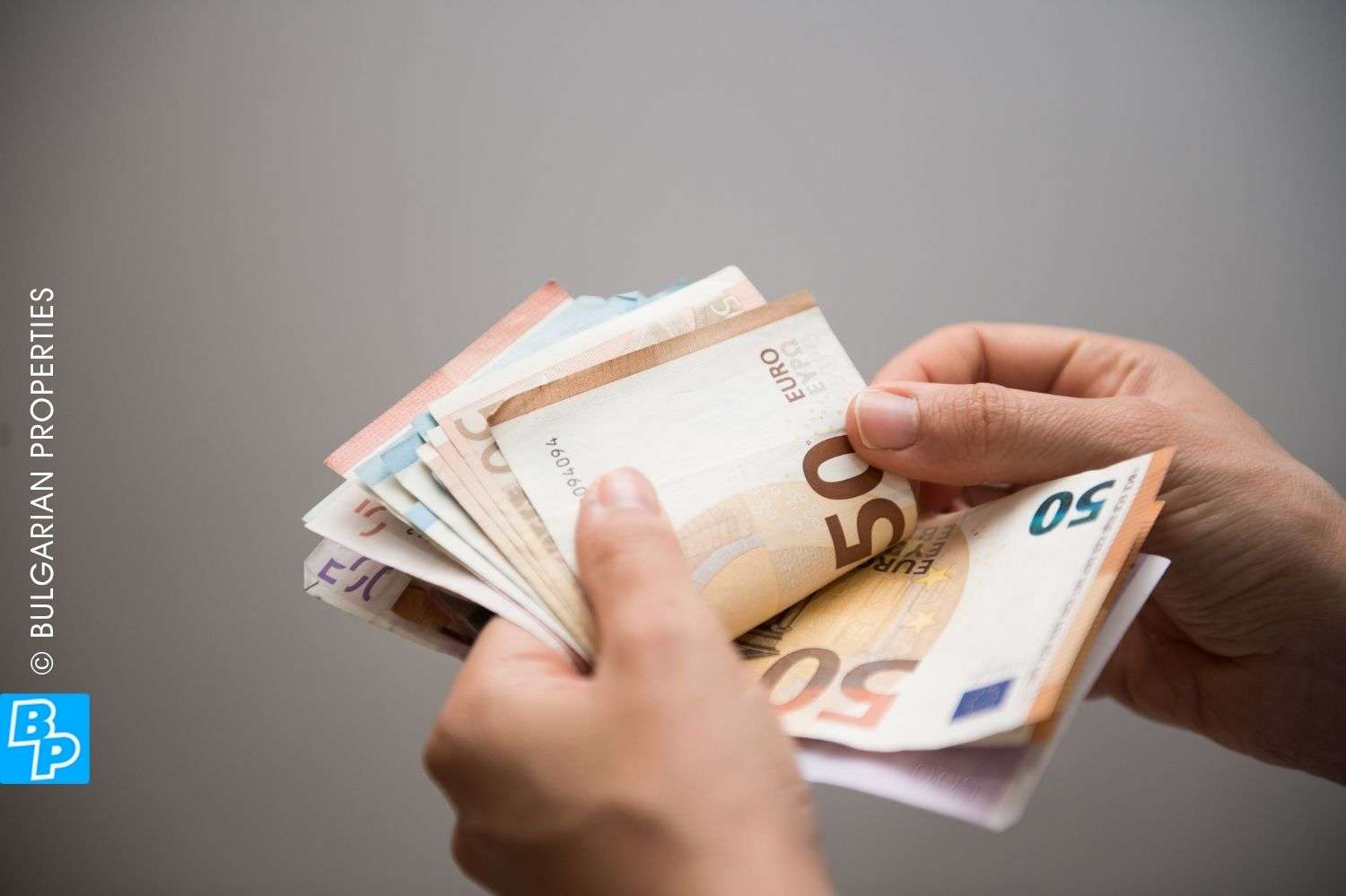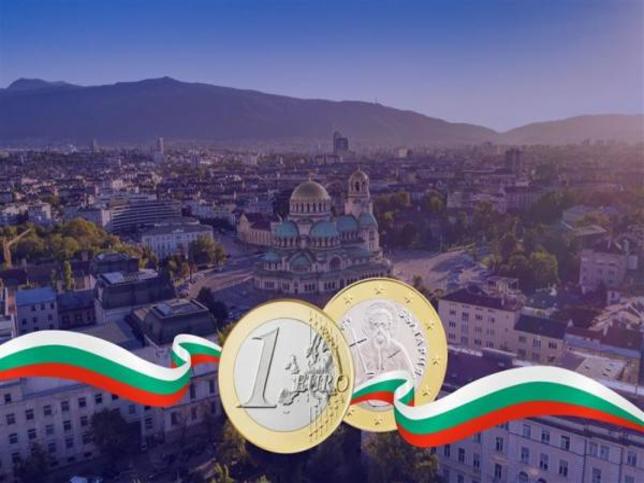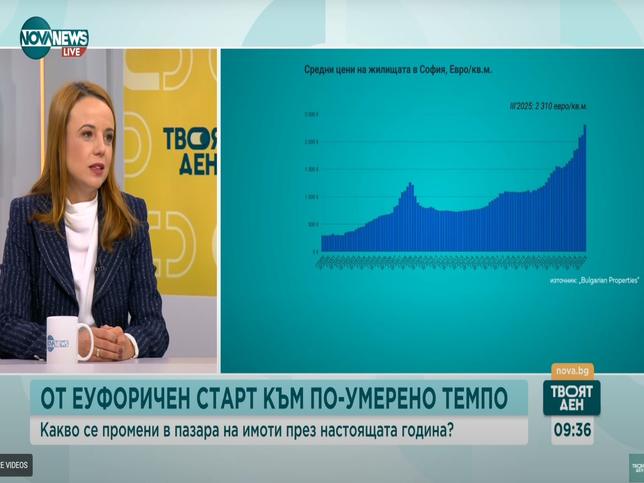What to expect for housing prices in Bulgaria after the introduction of the euro?
 Property prices in Sofia are still significantly lower than those in other European capitals
Property prices in Sofia are still significantly lower than those in other European capitals
How will the property market in Bulgaria change after we join the eurozone? This is a key question for both property owners and those considering a purchase. Will prices rise? Will there be a slowdown? Should I buy, sell, or wait?
The experience of other countries shows that adopting the euro almost always triggers a wave of demand, price increases, and increased interest from foreign investors. However, the effect of the currency change cannot be viewed in isolation—the broader economic and interest rate context is also important.
The market in Sofia in 2025: price records before the euro
According to data from Bulgarian Properties, one of the largest real estate agencies in Bulgaria, the average price of new-build homes in Sofia in the first quarter of 2025 reached ˆ2,080 per square meter. This represents an increase of about 18% compared to a year earlier.

Demand continues to outstrip supply, with the number of building permits also on the rise. The main drivers of this activity are expectations that prices will rise after the adoption of the euro, as well as buyers' desire to "protect" themselves from inflation by investing in real estate.
Sofia remains affordable – for now
Sofia is still among the most affordable capitals in the EU in terms of housing prices and rents. However, the gap with cities such as Budapest, Ljubljana, and Zagreb is rapidly narrowing. Analysts expect that with rising incomes and entry into the eurozone, the Bulgarian market will continue to grow, approaching the levels of southern European cities. This makes the period around the adoption of the single European currency particularly important for all market participants.
What did Croatia's experience show?
Croatia is introducing the euro on January 1, 2023, and the real estate market is reacting quickly and noticeably. According to data from the Croatian Statistical Office and the ECB, average house prices in the country rose by around 13% in the first year after joining the eurozone, with the highest growth in the capital Zagreb (15-17%). The reasons: increased domestic demand, an influx of buyers from Austria and Germany, and the widespread expectation that with the euro, prices will "as a rule" rise.
The situation was further heated by tourism and investment interest in the Croatian coast—a scenario that is not entirely applicable to Bulgaria, but is a clear signal of the possible short-term effect of the currency change.
The Croatian scenario is reminiscent of that of Slovenia almost two decades ago. The country joined the Eurozone in January 2007, and in the first 12 months, housing prices in major cities rose by 10-15%, especially for new construction, with this increase leveling off in the following years. This is seen as a typical pattern of behavior: a wave of growth driven by expectations and emotions, followed by stabilization. Of course, we must also take into account the general economic situation in Europe and the world in the years that followed, including the global financial crisis of 2008, which had a serious impact on real estate markets in a number of countries. It is this broader picture that reminds us that the adoption of the euro is important in itself, but not the only factor – the real impact on prices depends on a multitude of interacting economic, social, and market processes.
In Latvia, however, which adopted the single European currency in 2014, the growth recorded for the first 12 months was much more conservative – an average of 4-5%. There, it is not so much the euro that plays a strong role as the gradual recovery of the sector after the deep slump until 2010, when the market in Riga and other large cities lost over 30% of its value. The years up to 2014 in the Baltic state were characterised by slow and steady growth, and this process has continued since joining the Eurozone. Experts note that the lack of speculative demand and stricter banking controls contribute to this more moderate growth and point out that when the market is in a phase of balanced development, without accumulated expectations of price shocks, the effect of the euro can be moderate and predictable.
The influence of interest rates and investors
The real estate market in Bulgaria is already showing signs of growth in anticipation of the euro, according to Bulgarian Properties. The effect of the news has already been consumed to a certain extent in the several set and postponed dates for membership over the last two years.
However, interest rates will be an important catalyst for supply and demand. After the introduction of the euro, Bulgaria will join the ECB's single interest rate policy. This is expected to affect the cost of housing loans, whose low levels currently continue to stimulate demand.
On the other hand, however, currency stability and the elimination of currency risk would help make the Bulgarian market more attractive to foreign investors and buyers, according to industry forecasts. The real estate market would be perceived as more secure and transparent.
Should we buy or sell property? How should we proceed?
Buyers would do well to consider their actions strategically before the euro, brokers advise. If you are planning to buy, don't delay too long. Expectations of price increases are already affecting the market. Buyers who enter the market early could benefit from a possible increase in property values. And if the purchase is planned with a mortgage, a fixed interest rate for 5-10 years may be a reasonable hedge against future interest rate increases.
If you are planning to sell, now is an extremely favorable time for a quick sale. Demand is strong, and expectations of growth are creating a sense of urgency among buyers. This puts you in a stronger negotiating position. After the introduction of the euro, there may be some cooling in demand due to the perception that the market "will not be the same."
The adoption of the euro inevitably creates a sense of increased activity, especially in Sofia and other large cities. However, long-term development will depend on economic growth, incomes, interest rates, and the overall stability of the real estate market. Experts indicate that they see moderate growth in line with the pace of other European capitals. But one thing is clear—the period before the introduction of the euro is a key moment when careful planning can bring serious benefits for both buyers and sellers.
Want to find out what your property is worth right now? Check it out in seconds with Bulgarian Properties' free property calculator:

Read more news




